First held in 1970, Earth Day is a celebration of the achievements of environmental movements and a reminder of the urgency to protect our planet. With many of our Community Members active for this cause, we want to share on this day how some of our Alumni and Fellows create a positive environmental impact. In this article, you will learn about the actions of Adélaïde Charlier, Aushim Koumar, Sander Defruyt and Gregoire de Hemptinne and learn about their ways of fighting climate change, and discover the project “How Deep is Your Love (for the planet)”, a Field Work of Alumni Camille Claeys, Louis Lammertyn and Anne-Sophie Aberi-Moska.
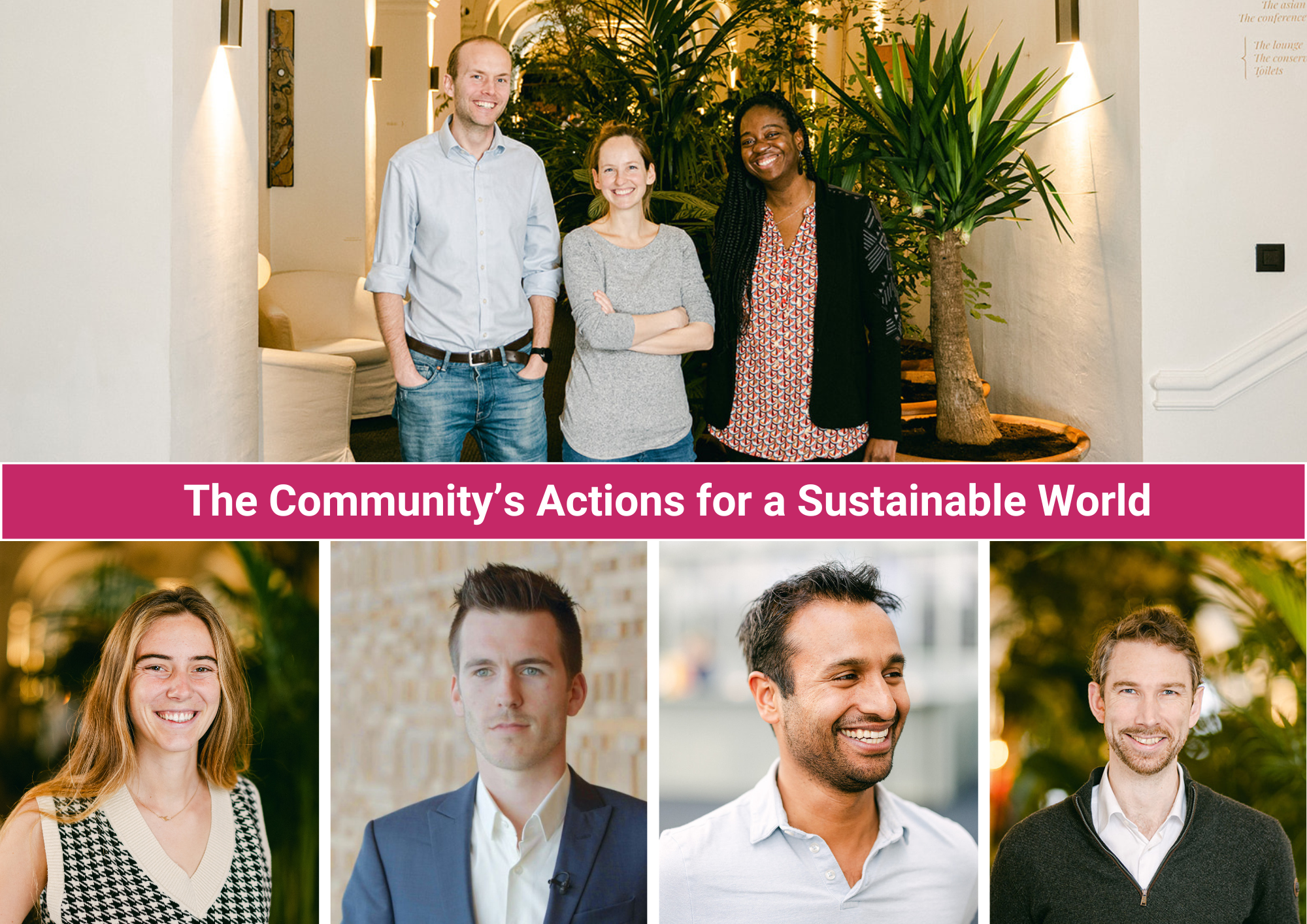
Adélaïde Charlier is a climate and social justice activist, and a student in political and social science. She describes the objectives of her activism being about “spreading awareness and knowledge and encouraging people to take action on that knowledge.” The second goal is to put “constant pressure toward political institutions, it is part of our democratic system to hold our leaders accountable.”
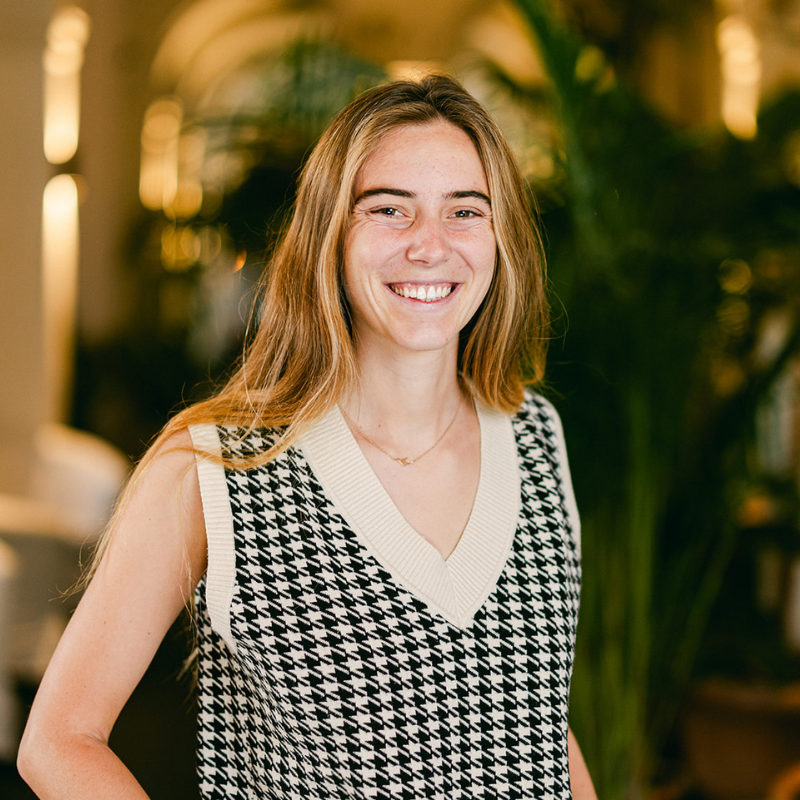
One recent milestone in her activism journey happened at the beginning of 2024. Adélaïde and her team celebrated a victory at the European Parliament when a vote against deep-sea mining was passed, “it was symbolic, we made it on European level”, Adélaïde recalls that day. In addition, mere hours later, she found out that the campaign fighting the sponsoring of the 20km of Brussels of Total Energies was won too. “After two years of lobbying, campaigning and being the annoying guy in the picture, at the end of the day we did it. This is for me the definition of success, it is the determination. The process is long, we could have stopped, given up. Sometimes you don’t see the success, but if it shows up, it’s the best feeling in the world, it gives me energy and days like these are the reason I do my activism.” Earth Day is an occasion to celebrate such milestones, but it also serves as a reminder what is at the heart of these stories: “It is important to remind ourselves that we are not doing this because it is beautiful, but because we have no other choice, the urgency is there. So, on Earth Day, this is important to remember: even if I love to share these beautiful stories of our activism, I want to remind everyone that these are stories and actions coming from fear too.”
Adelaide started her 40u40 journey in September 2023, the program allowed her to see her activism from another perspective: “It is a great way for me to analyze my activism, see where I want to go next and ask the right questions and have people help me find the answers. At the same time, activism is a bubble in Belgium. 40u40 can help me to break that bubble and bring in new people and discover other bubbles in Belgium too, so that we can learn from each other.” When asked where she draws her motivation to continue her fight, she shares that “climate change can be a depressing topic, but what is not depressing is the reaction that you can have as a human being. Hope, for me, is active. If I just fall asleep at night and hope for something, nothing is going to happen. We have to be the actors of change. However, you are not changing the world by yourself, you have to be part of a collective that is willing to change the world. A crucial message I would like to add to this is that one reason some people maybe don’t want to act is because we don’t feel legitimate. But even if I’m not an expert and I’m not going to invent a solution to solve climate change, I am still legitimate to play a role in that story. We are all legitimate in our own role to take actions.”
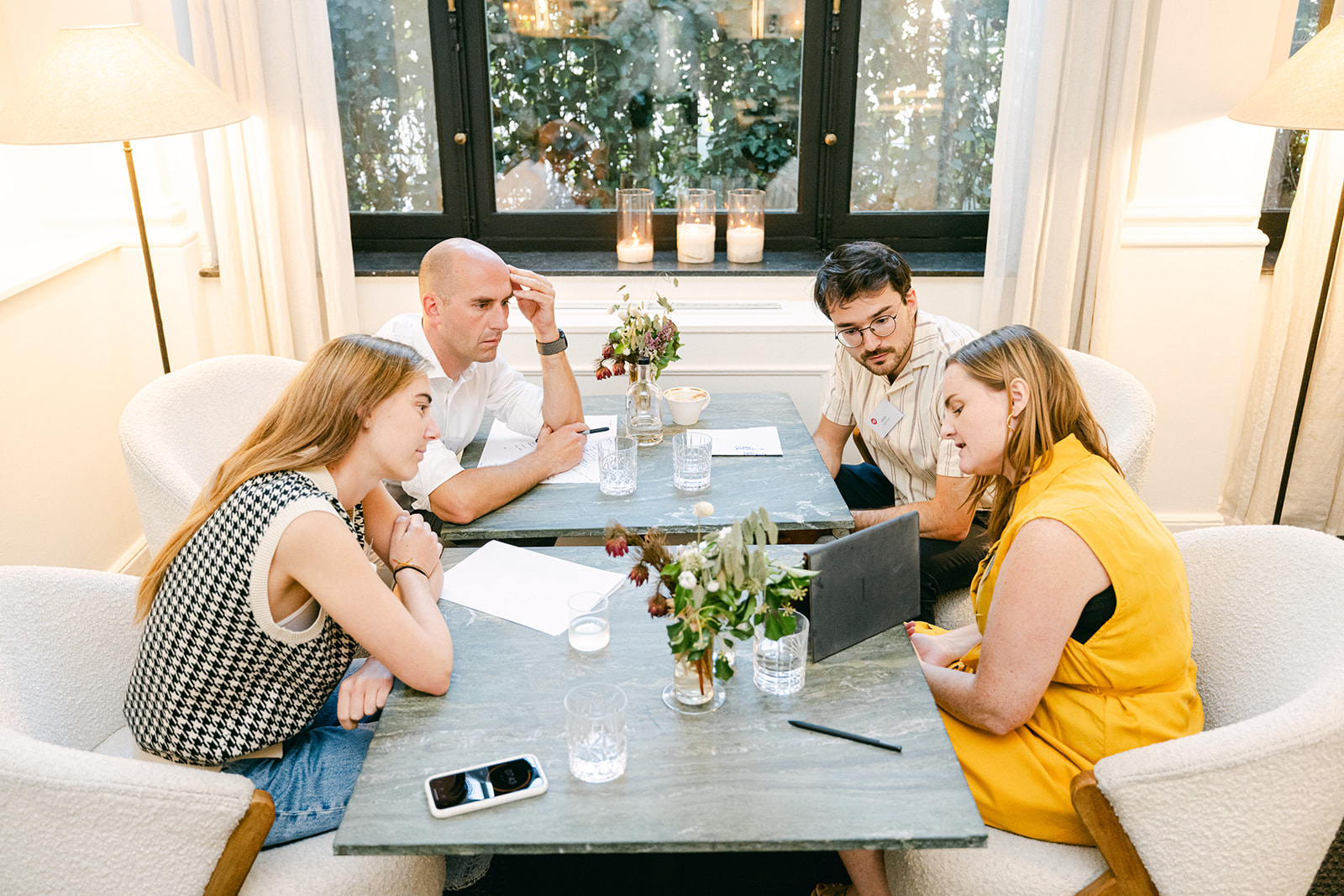
This year’s theme of Earth Day is “Planet vs. Plastics”, advocating for the end of plastics for the sake of humanity and planetary health and a demand to reduce the production of all plastics by 60% by 2040. Sander Defruyt works as the lead of the new plastics economy initiative at the Ellen MacArthur Foundation, a UK-based charity committed to creating a circular economy aimed at eliminating waste, promoting circular products, and regenerating nature.
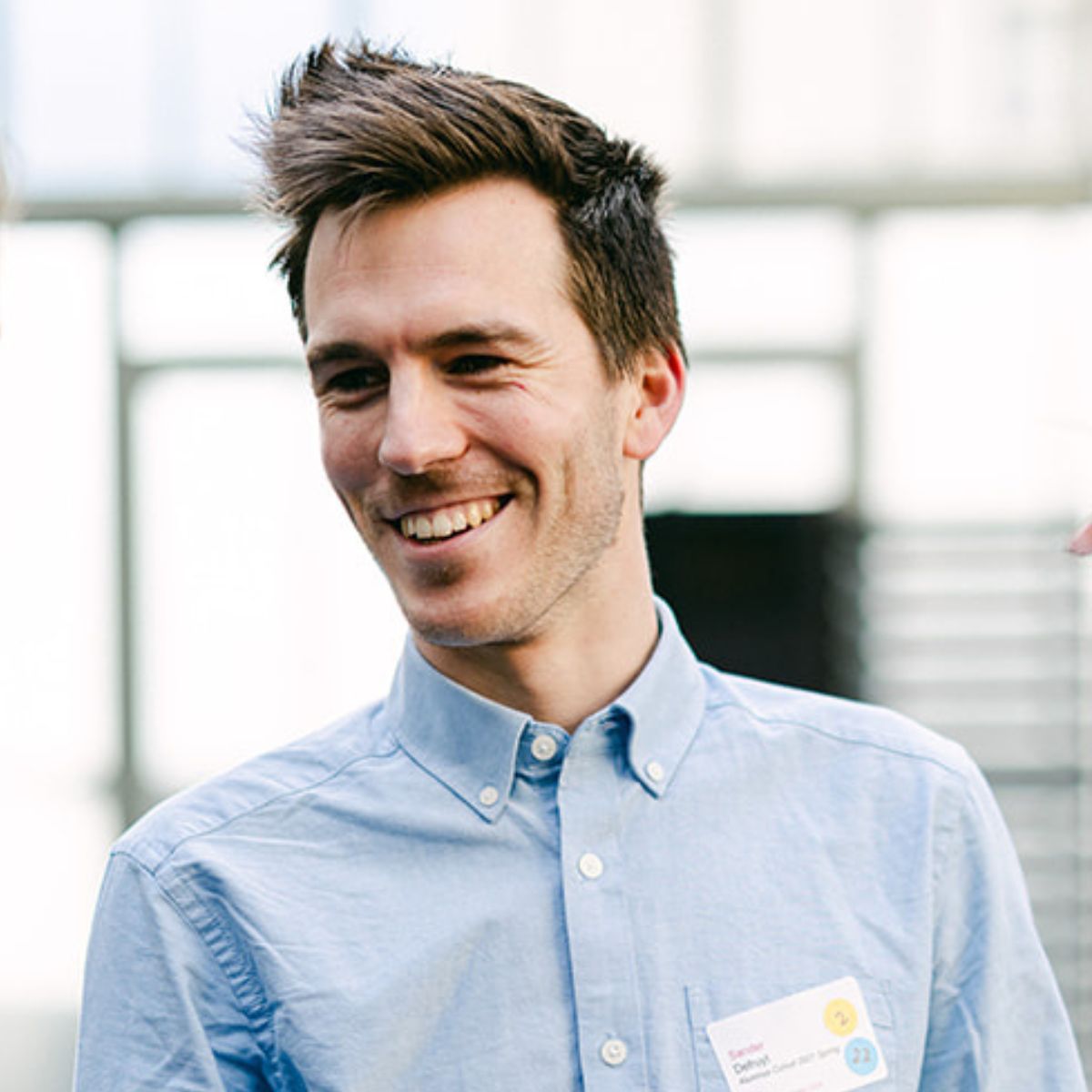
The Alumnus of Cohort 2021 Spring explains that “the way we use plastic is very linear, if you try to draw a diagram, there would be a very straight line from fossil fuel resources to producing plastic goods, most often for a short or single use, and then to be discarded at the end. It is a very linear process with enormous impact on the environment, and also on our health with plastic particles being found inside human bodies and other living creatures.”
Sander started working on this problem about eight years ago, over that time, he observed that “the attention and the momentum surrounding this topic have significantly grown, but we now urgently need to scale up solutions. Even though there is progress in business as well as policies, the scale of the problem is growing faster than the scale of the solution.” For Sander, the solution goes beyond waste management and recycling. First, the plastic that is unnecessary needs to be eliminated. “Then, we need to innovate and the plastic we do need should be made reusable as much as possible. And then there is the circulation of the plastics that we use to make sure they are recycled or used again. So it’s all about eliminating, innovating and circulating”, Sander points out.
Aushim Koumar is an entrepreneur driven by a desire to have a positive societal impact. This Alumnus of Cohort 2021 Spring founded the company Konligo, providing pop-up domes that combine creative engineering with a sustainable mission. “We create structures for temporary events. Usually, there is a lot of waste behind such events. We are trying to change this by providing a system that will make it possible to have different kinds of pop-ups that are always running on the same basic elements,” Aushim explains. The designs are made in Belgium, they reduce waste, and thus, overall, are a sustainable product. For Aushim, “Konligo is about having stewardship, which is more than just sustainability. It is about the way you do things; societal impact is very important to me. That for me is also part of sustainability, it should be a full approach.” Creating positive change in society and in environmental matters is not a one-man show or job: “Entrepreneurship and the entrepreneurial mindset can bring people together for a common mission and inspire one another. A company is not successful because of the CEO alone, it is successful because of the people brought in, working together, and inspiring each other, who then can create change.”
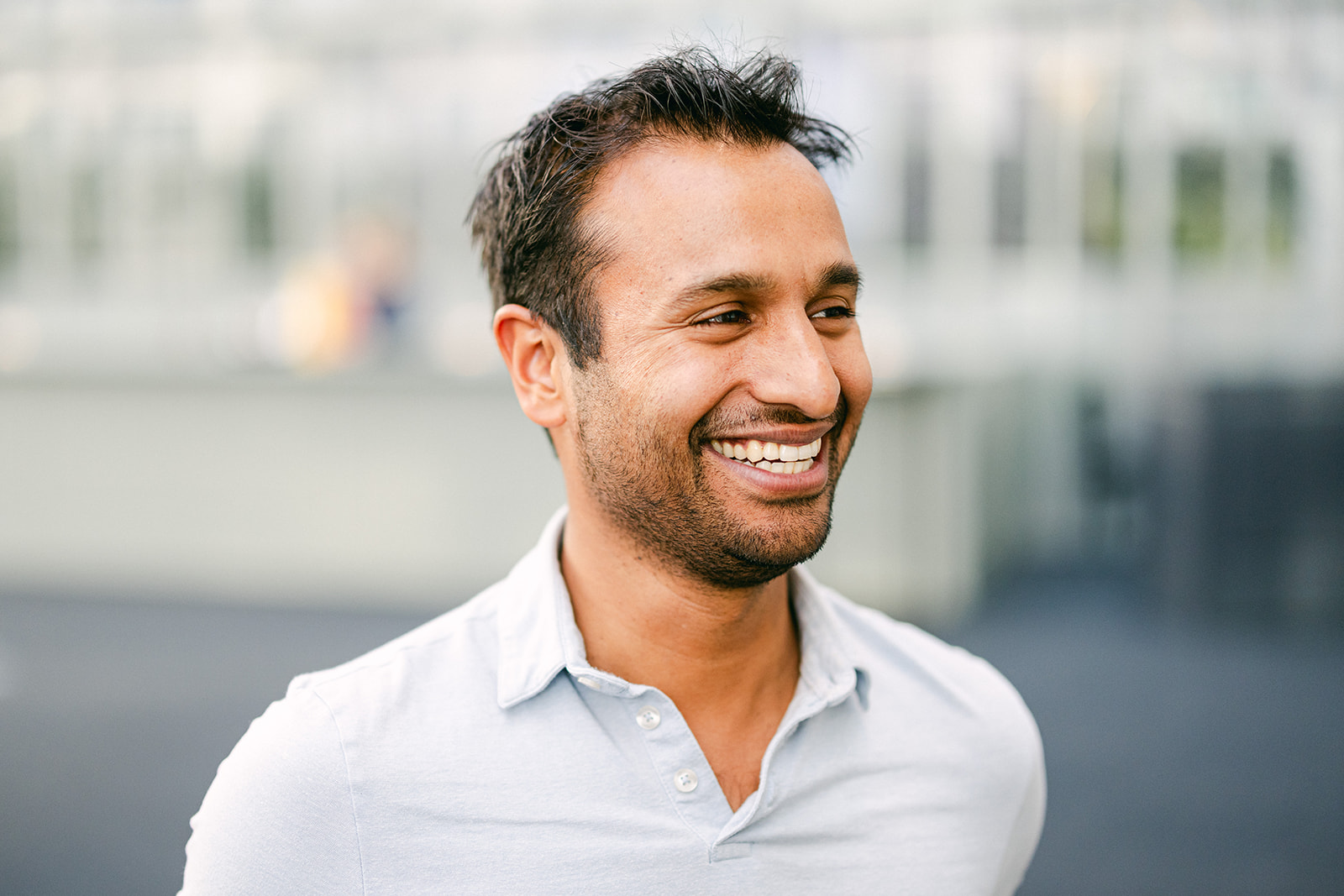

Gregoire de Hemptinne was a Fellow of Cohort 2022 and he is the co-founder of Shayp, a water leak detection service with the mission to help preserve water resources. “We tend to say if climate change was a shark, the water scarcity would be the teeth.The impact of reducing water transfers to many other dimensions as well. It is impacting poverty, it’s about biodiversity, ocean life… Working on water means working on many climates related topics all together”, Gregoire explains.
As an adventurer and mountaineer, spending much of his time in nature, he discovered first-hand the negative impact humans have on the environment. For Gregoire, “there is much you can do by being creative and innovative, by embedding a business model with impact. We need the entrepreneurial mindset to combat climate change: daring to put your brain and energy at stake in changing the classical way of doing things.”
To address complex challenges like climate change, there is not one solution or one single change that solves everything. Gregoire shares his perspective that “innovation and impact start with small steps. When I was a kid, I read books about people climbing Mount Everest. It seemed impossible for me to do the same. I started doing some mountaineering, did the first expeditions, the second, started with small summits, then bigger ones. I was becoming the person that I was reading about, but it never happened overnight. Big problems, like climate change can seem impossible to tackle. But you need to start with thinking about the things you can do and start with those. And eventually you will look back and see that during your path, you did create an impact along the way, but you will never solve the whole thing at once.”
Through Belgium’s 40 under 40, Gregoire met other Community Members who shared his drive to have a positive impact on the environment. He shares that “40u40 widened my understanding on how to interact with other leaders and connect the dots.” Together with other Fellows of his Cohort, Gregoire worked on the Field Work project BeClimate Hub: “When we started, we were a group of people who were all motivated about environmental impact, but we were all looking at it from a different angle. We couldn’t agree on what to work on, and eventually we realized how extraordinary that is. We have different perspectives on the same problem, so let’s find the value in that. And this was very insightful for me.” Gregoire shares about his 40u40 journey.
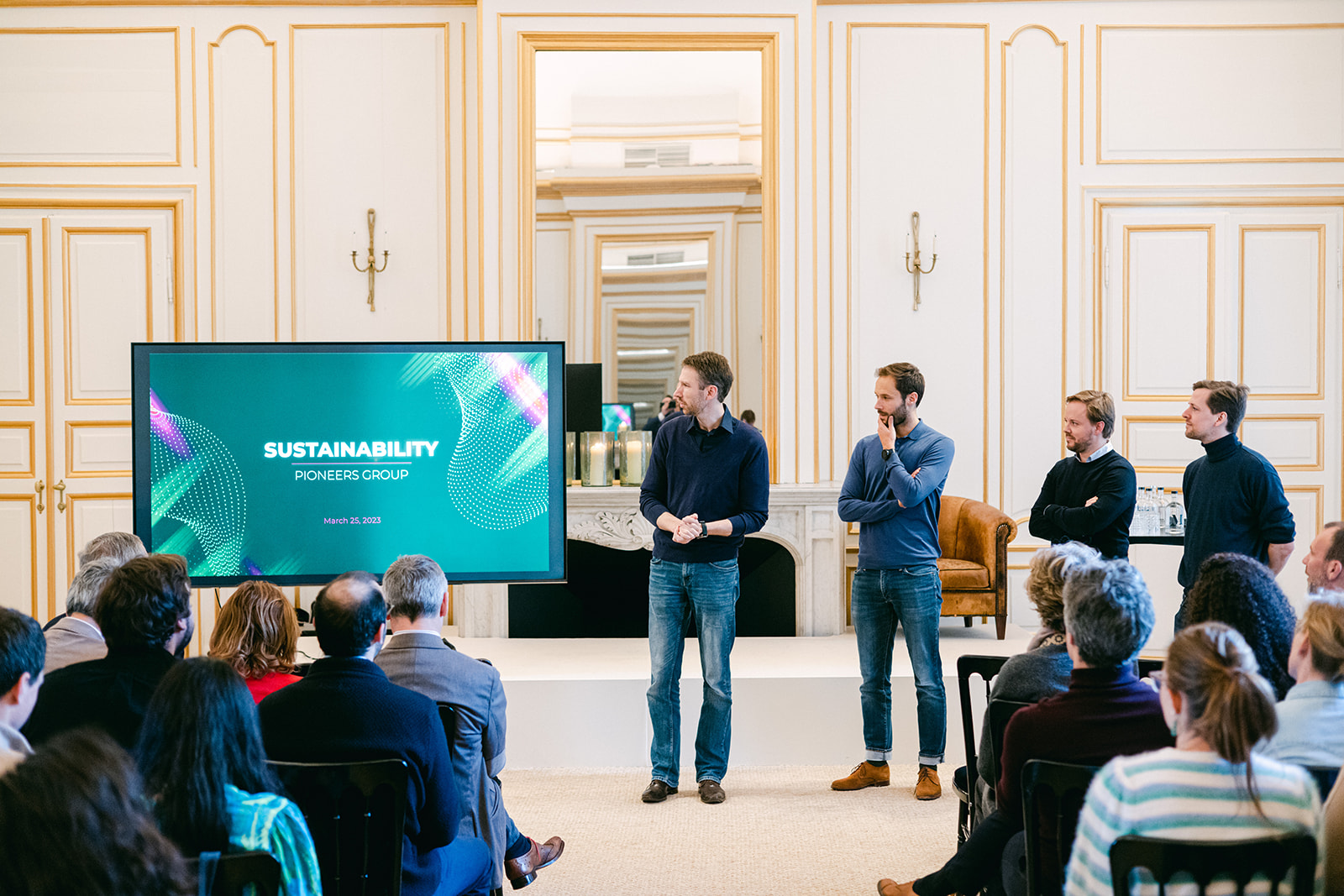
“How deep is your love for the planet?” is the name of a platform being developed by Camille Claeys, Louis Lammertyn, and Anne-Sophie Aberi-Moska, and started as part of their Field Work project. The three Alumni of Cohort 2022 are passionate about creating a more sustainable world and for them, to start the needed changes, you have to start with yourself. “We wanted to find a way to motivate citizens to act”, recalls Anne-Sophie, when sharing the initial thoughts behind this project. “We realized that many people do not act because they do not know how. We want to help bring people together, inspire them and help them to inspire others. For us, one person alone cannot change the world, but if we add one, plus one, plus one, if we bring people together, we will create change.” To start their Field Work with this mission, the group decided to look for inspiration, and watched “The Week”, a group experience where everyone watches three documentary film episodes about climate change over a week; and engage in guided conversations about it.
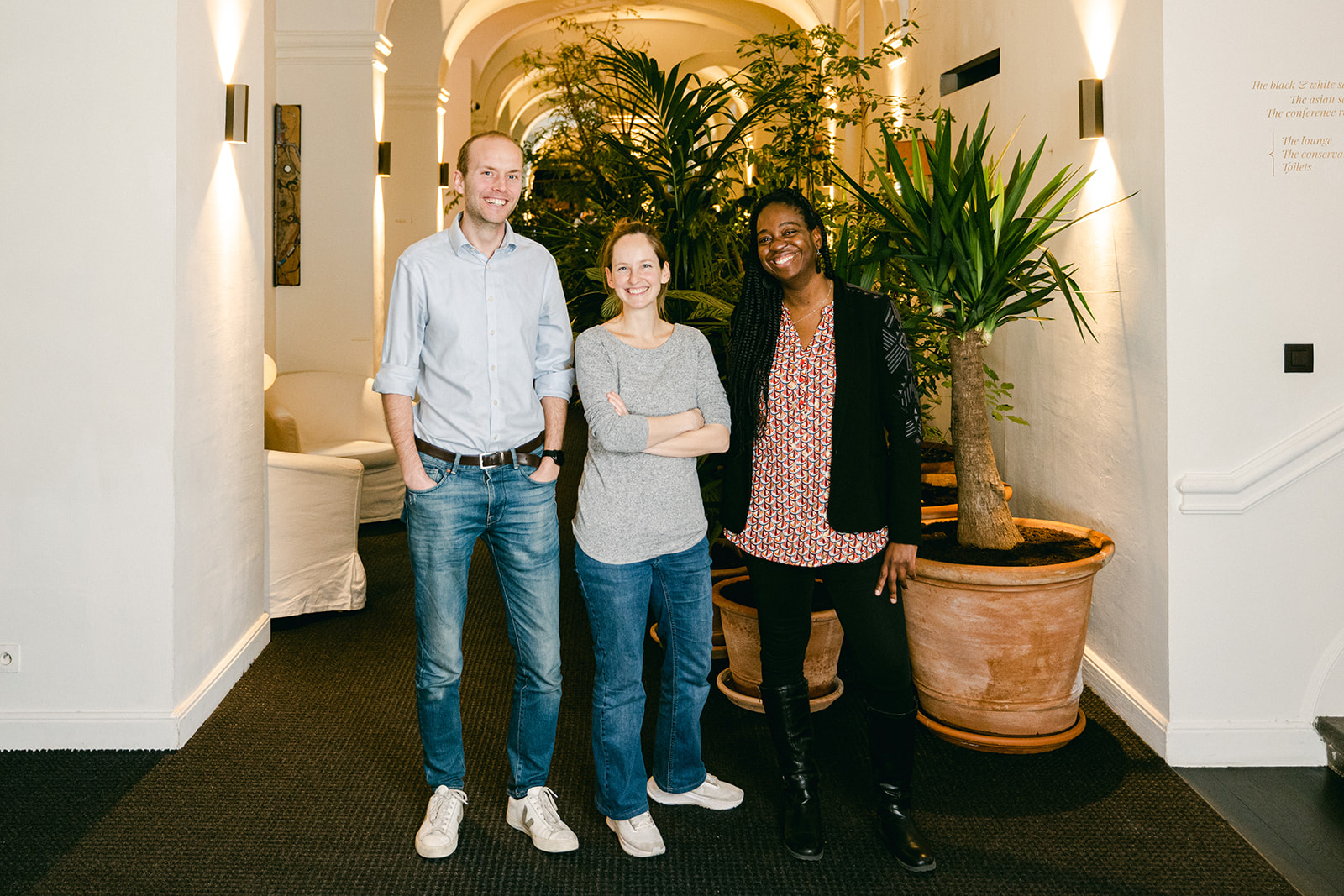
After watching “TheWeek”, “there was this consensus between us that this documentary raises your awareness, you want to act and are motivated, but you don’t know where to start,” Anne-Sophie recalls. The idea to create a platform for this purpose was born: A website with a step-by-step guide to kick-start your own sustainable journey. Anne-Sophie explains the idea is to offer tangible actions one can take, “for example, if you decide you want to start buying second-hand, the website will offer you a list of places to do so. You will also find an indicator of impact for your actions and its ease of application.” The website is built on three pillars. The first one addresses your individual footprint. “First, you need to realize you have an individual footprint and then you need to decide what changes you want to make” says Anne-Sophie. The second pillar is about internal development goals. Mental and physical health are crucial to create a healthy planet: the website helps create an inventory of your current habits and decide what changes you can do and how to keep them. The third pillar is the positive handshake. It answers the question “What positive impact can you have on this world by deciding to be part of environmental initiatives?”, it’s a section that emphasises the power of joining hands.
While in the program, the group engaged in brainstorming sessions and engaged with various stakeholders. Louis shares how he enjoyed this process because it was a chance to dig deeper into the sustainability field, in addition “the group really connected, we all share the same values and missions in life, and we were invested in tackling a challenge together, in our case sustainability. We managed to create a real feel good vibe.” Anne-Sophie explains that once the program ended, “we decided to continue staying involved since the project really matters to us. The next steps involved finding a partner to help us develop the website and coming up with the catalogue of actions.” The project continues, and the group is planning to launch the website in Autumn of 2024.
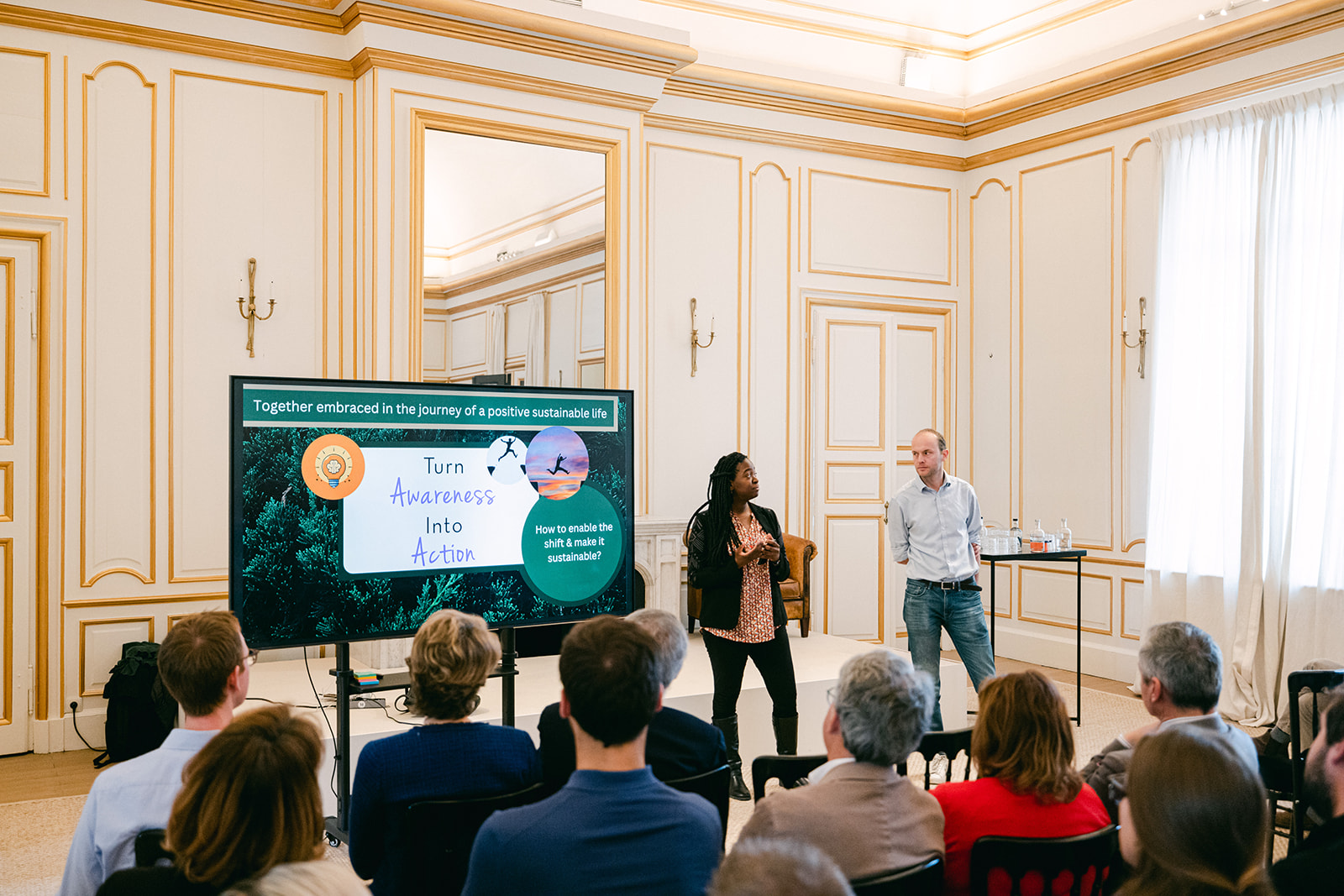
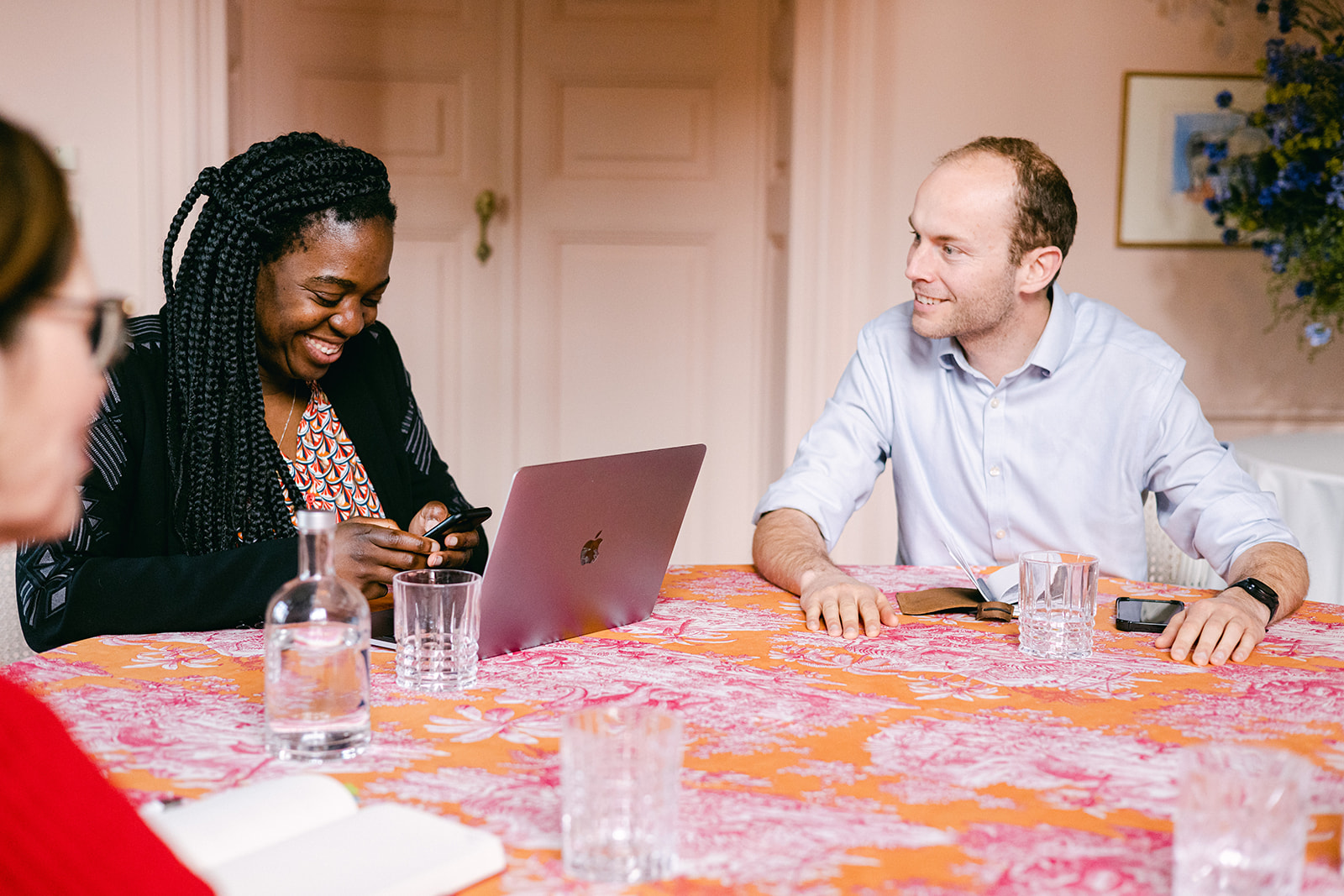
| Cookie | Duration | Description |
|---|---|---|
| cookielawinfo-checkbox-advertisement | 1 year | Set by the GDPR Cookie Consent plugin, this cookie is used to record the user consent for the cookies in the "Advertisement" category . |
| cookielawinfo-checkbox-analytics | 1 year | Set by the GDPR Cookie Consent plugin, this cookie is used to record the user consent for the cookies in the "Analytics" category . |
| cookielawinfo-checkbox-functional | 1 year | The cookie is set by the GDPR Cookie Consent plugin to record the user consent for the cookies in the category "Functional". |
| cookielawinfo-checkbox-necessary | 1 year | Set by the GDPR Cookie Consent plugin, this cookie is used to record the user consent for the cookies in the "Necessary" category . |
| cookielawinfo-checkbox-others | 1 year | Set by the GDPR Cookie Consent plugin, this cookie is used to store the user consent for cookies in the category "Others". |
| cookielawinfo-checkbox-performance | 1 year | Set by the GDPR Cookie Consent plugin, this cookie is used to store the user consent for cookies in the category "Performance". |
| CookieLawInfoConsent | 1 year | Records the default button state of the corresponding category & the status of CCPA. It works only in coordination with the primary cookie. |
| elementor | never | This cookie is used by the website's WordPress theme. It allows the website owner to implement or change the website's content in real-time. |
| JSESSIONID | session | New Relic uses this cookie to store a session identifier so that New Relic can monitor session counts for an application. |
| wpEmojiSettingsSupports | session | WordPress sets this cookie when a user interacts with emojis on a WordPress site. It helps determine if the user's browser can display emojis properly. |
| Cookie | Duration | Description |
|---|---|---|
| lang | session | LinkedIn sets this cookie to remember a user's language setting. |
| li_gc | 5 months 27 days | Linkedin set this cookie for storing visitor's consent regarding using cookies for non-essential purposes. |
| lidc | 1 day | LinkedIn sets the lidc cookie to facilitate data center selection. |
| Cookie | Duration | Description |
|---|---|---|
| _ga | 1 year 1 month 4 days | Google Analytics sets this cookie to calculate visitor, session and campaign data and track site usage for the site's analytics report. The cookie stores information anonymously and assigns a randomly generated number to recognise unique visitors. |
| _ga_* | 1 year 1 month 4 days | Google Analytics sets this cookie to store and count page views. |
| _gat_gtag_UA_* | 1 minute | Google Analytics sets this cookie to store a unique user ID. |
| _gcl_au | 3 months | Google Tag Manager sets the cookie to experiment advertisement efficiency of websites using their services. |
| _gid | 1 day | Google Analytics sets this cookie to store information on how visitors use a website while also creating an analytics report of the website's performance. Some of the collected data includes the number of visitors, their source, and the pages they visit anonymously. |
| CONSENT | 2 years | YouTube sets this cookie via embedded YouTube videos and registers anonymous statistical data. |
| Cookie | Duration | Description |
|---|---|---|
| li_alerts | 1 year | Description is currently not available. |
| Cookie | Duration | Description |
|---|---|---|
| bcookie | 1 year | LinkedIn sets this cookie from LinkedIn share buttons and ad tags to recognize browser IDs. |
| bscookie | 1 year | LinkedIn sets this cookie to store performed actions on the website. |
| IDE | 1 year 24 days | Google DoubleClick IDE cookies store information about how the user uses the website to present them with relevant ads according to the user profile. |
| test_cookie | 15 minutes | doubleclick.net sets this cookie to determine if the user's browser supports cookies. |
| VISITOR_INFO1_LIVE | 5 months 27 days | YouTube sets this cookie to measure bandwidth, determining whether the user gets the new or old player interface. |
| VISITOR_PRIVACY_METADATA | 6 months | YouTube sets this cookie to store the user's cookie consent state for the current domain. |
| YSC | session | Youtube sets this cookie to track the views of embedded videos on Youtube pages. |
| yt-remote-connected-devices | never | YouTube sets this cookie to store the user's video preferences using embedded YouTube videos. |
| yt-remote-device-id | never | YouTube sets this cookie to store the user's video preferences using embedded YouTube videos. |
| yt.innertube::nextId | never | YouTube sets this cookie to register a unique ID to store data on what videos from YouTube the user has seen. |
| yt.innertube::requests | never | YouTube sets this cookie to register a unique ID to store data on what videos from YouTube the user has seen. |